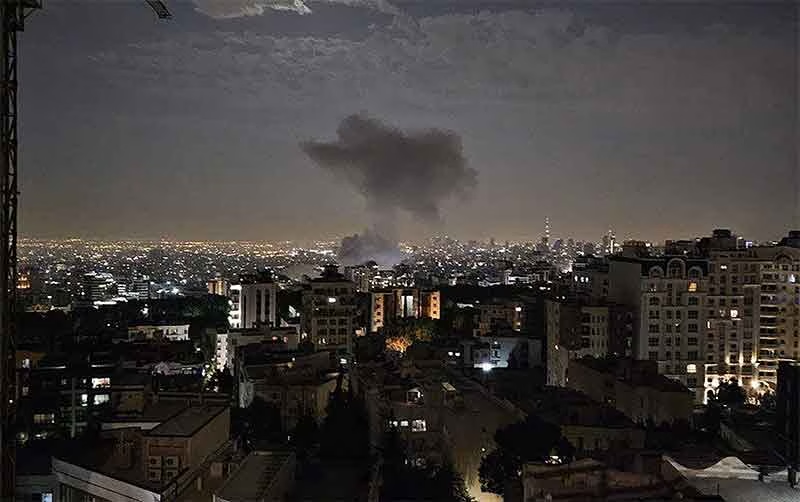
There is increasing concern among some of the most well-informed people and institutions of the world that the most important problems which together constitute a survival crisis are worsening. Of course several organizations and experts have been constantly at work on disarmament issues as well as various serious environmental problems including climate change, yet the concerns regarding a worsening situation persist.
Some years back the late J.K. Galbraith had written on his experiences regarding the United Nations in The Guardian—“As from all persons of goodwill, the UN has long had my support. I have often been on its New York premises. Alas, however, I have never come away without a powerful impression of speeches and yet more speeches emphasizing worthy purpose—disarmament, economic development, human rights, women’s rights, peaceful resolution of some dispute, much else—that were without any clear relation to practical result. I’ve had the impression that no action was really intended; here too, the rhetoric was the reality. Nothing more was expected or asked.”
Subscribe to Our Newsletter
Get the latest CounterCurrents updates delivered straight to your inbox.
Many thoughtful and concerned persons have the same feelings today about several international organizations and conferences on very important issues, although they may not express their views so frankly. There is an increasing repeat of routine activities and speeches at many such gatherings, to the extent that what is said or declared can often be predicted well in advance. While those involved applaud the outcome in their own way, the world hardly moves any further. Worse, powerful interests are allowed to distort the discourse so that the declarations that emerge may be documents of convenience at best and of deceit at worst, and hence do not help in actually solving serious problems.
All this is much more worrying now than when Galbraith voiced his criticism, as the survival crisis has advanced much more and any dilly-dallying and delaying or distorting will now be much more costly.
What we need most urgently is a comprehensive plan that can consider all aspects of the survival crisis (such as climate change, other serious global environmental problems, weapons of mass destruction etc.) together and offer solutions within a framework of justice, peace and democracy. Essential components of such a plan are likely to a no-wars future and elimination of all weapons of mass destruction. This will include a radical transition out of fossil fuel based energy systems with ultimate phasing out of fossil fuels. Soil and water conservation as well as ecologically friendly food and farming systems will be a very important part of this plan. Such a comprehensive plan will include model building to match meeting the basic needs of all people of world with the existing constraints of emissions and resource-use. Such exercises are likely to reveal that within these existing constraints, basic needs of all people can be met only by reducing drastically all harmful and wasteful goods. This itself is a strong message for moving towards equality, justice and a simple life of limited needs. A different notion of a desirable life pattern, and the human values linked to this, is involved here-moving away from greed towards need. Humanity must seek higher forms of happiness in more creative pursuits, in improved social relations and in helping other human beings and other forms of life. Improved social relations, family and community life in turn can provide the base for contributing to environment protection and peace. Educational and spiritual institutions can contribute much to this and to inter-faith harmony so that humanity can be united to contribute together to protect earth and all its life-forms. In such a vision challenges such as climate change mitigation and adaptation are not to be seen as burdensome tasks but as highly creative pursuits taken further by the cooperation of a lot of people.
In such holistic thinking, peace/disarmament and environment/ biodiversity protection are linked to each other and to justice and equality, and taken forward in a democratic way, all the time guided by a comprehensive plan which integrates elimination of weapons of mass destruction, climate change mitigation and adaptation as well as resolving of other serious global environmental problems in such a way that various solutions are helped by each other.
All this is possible only by sustained mobilization of people on these issues in democratic ways on a significant scale, at the same time exploring and maintaining links to sympathetic persons in governments and various institutions, including international and UN ones, academia and media. Important initiatives should be launched and tried at village, city, province, national and international levels, with the cooperation of governments and public authorities when possible to achieve bigger results. Public pressures should be created for governments to contribute to this with sincerity. However a key to the success of all such efforts is to first spread comprehensive understanding of what is needed and its various linkages. Only then it will be possible for several small efforts to evolve into the much bigger and sustained change that is needed.
Bharat Dogra is Honorary Convener, Campaign to Save Earth Now. His recent books include Planet in Peril, A Day in 2071, When the Two Streams Met and Protecting Earth for Children.














































